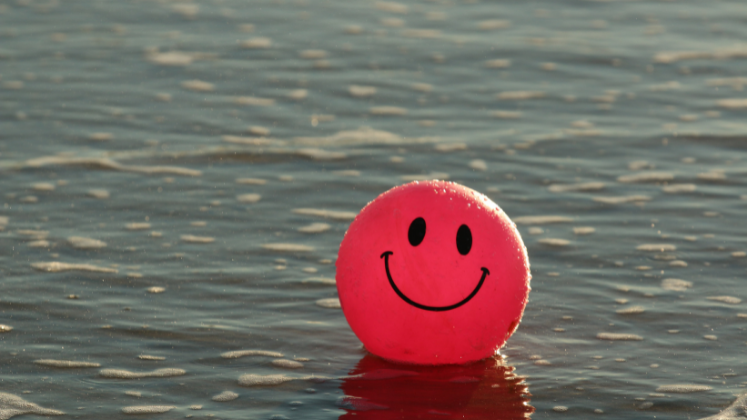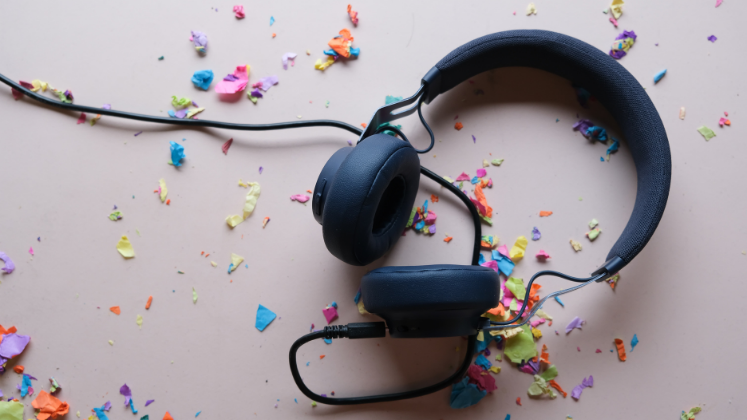In this series we publish blog posts written by our first year undergraduate students for the PB101 Foundations of Psychological Science course. Here Naina Sahni considers whether digital detox is effective in combatting smartphone addiction, or whether there are better strategies.
 Image created by the author.
Image created by the author.
“You’ve checked your phone so many times in the past 20 minutes” my friend says as we catch up for coffee. I stare at her blankly, only then realising my constant urge to check for notifications or that “very” important message. It’s something many of us don’t notice until someone around us points out: “You’re always on your phone!” or until the screen-time notification pops up at the end of the day, leaving us guilty for spending too much time glued to our screens.
Smartphones have effortlessly become a staple in our daily lives – tools for communication, content creation, research, and even relationship-building. Yet, the increase in technology has sparked concerns about our psychological, physical and social well-being, giving rise to the trendy phenomenon of “digital detox” (Radtke et al., 2021).
Digital Dilemma: The Stressful Side of Dependency
Advancement in technology has made us more connected than ever, but this comes with a notable trade-off. Recent research suggests that we are becoming overly-dependent on our devices, verging on the term “addicted” (Nie et al., 2020). Ever wondered if you’re addicted to your phone? Explore it through this quiz!
Picture this: The moment you realise you have forgotten your phone somewhere, it is more than a simple inconvenience – it can be really distressing, right? Researchers have found that some people experience significant stress and anxiety when separated from their devices, similar to any other addiction scenarios. This form of anxiety is commonly known as ‘nomophobia’, which is the fear of missing out and fear of being offline (Nie et al., 2020).
Our smartphones have literally become an extension of ourselves. As we share more of our lives on smartphones, it creates a stronger bond and intensifies our nomophobia. This growing fear of disconnection makes us want to stay connected even more, emphasising the complex relationship between technology and our well-being (Ross & Bayer, 2021).
So, what is it about technology that is making us anxious and stressed?
- Perpetual Distraction: Distractions from constant notifications lead us to check our phones frequently.
- Sleep Dysregulation: Device use before bedtime disrupts sleep patterns due to overstimulation and exposure to blue light, reducing melatonin production. This lack of sleep contributes to increased anxiety and stress.
- Fear of Missing Out (FOMO): Social media induces social anxiety by making us believe that our friends are having exciting experiences without us.
- Social Comparison: Social media intensifies social comparison, as it provides metrics like followers and likes, creating negative comparisons and impacting well-being (Harrison & Lucassen, 2019).
To escape the negative effects of constant connectivity, some people are trying a “digital detox”- but does it really work, or is it just a trend?
What Even Is a Digital Detox?
Let’s first define what it means. The phrase in itself is quite self-explanatory: it means detoxing from the digital world. According to Oxford Dictionary, a digital detox is a “period of time during which a person refrains from using electronic gadgets, such as their smartphone, as a chance to relieve stress or focus on social connection in the real world” (El-Khoury et al., 2020).
What Does Research Say About Digital Detoxes?
So, what’s the deal with these digital detoxes, and is there any solid research to support it? Well, unfortunately, research does not provide a clear answer and there are many inconsistent findings.
The Good Side
On one hand, there are studies that suggest digital detoxes can be beneficial. In a study from 2020 by Brown & Kuss, they found that taking a break from social activities lead to lower FOMO and improved mental well-being and social connections (Radtke et al., 2021). A rise in well-being has been further supported by studies, like El-Khoury et al. (2020), which found that people felt happier, more productive, and less anxious. Coyne and Woodruff (2023) took it a step further. They did not only confirm the immediate benefits but also found that the positive effects lasted. After the digital detox, participants showed a lasting reduction is smartphone and social-media addiction.

Image created by the author.
The Bad Side
Despite these findings, not all research suggests that digital detoxes are the key to unlocking better face-face connections? We’ve all come across advice encouraging us to swap virtual hangouts for face-face meetups with friends. Although, Oxford and Valley et al. challenge this common belief. They suggest that taking a break from our devices doesn’t actually impact face-face, voice, and email interaction (Oxford et al., 2021) (Radtke et al., 2021).
Let’s talk about digital detoxing in different situations. Surprisingly, many studies found that taking a break from social media doesn’t really change how anxious we feel. Looking into satisfaction, researchers found that taking a break from social media had no effect on how satisfied people felt. These mixed findings show that the impact of digital detoxes are a bit tricky – it seems to affect different parts of life in different ways.
So, What’s the Alternative?
In dealing with the challenges of technology, relying on digital detoxes may not be the magic pill we’re hoping for. Let’s face it, in a world where technology is practically everywhere, detoxing from our online habits isn’t exactly a sustainable plan (Vally & D’Souza, 2019).
So, what’s a more practical, long-term solution? It’s all about mindful technology use. Instead of completely disconnecting, consider the idea of periodic detachment– using your gadgets only when necessary or within reasonable limits. Instead of endlessly scrolling through TikTok or Instagram reels, swap it out for in-person activities (McGuire, 2019).
Control your technology – don’t let it control you
So, how can you do this? Here are some of things I recommend trying:
- Turn off notifications and alerts, such as put your phone on focus mode or use app-blockers
- Remove harmful apps, such as unfollow accounts which make you always compare yourself
- Create tech-free spaces, such as clear your mornings and evenings. Have tech-free blocks of time
This approach lets you consciously choose when and how you engage with your devices. You remain in control, allowing you to pause whenever (Centre for Humane Technology , 2022). It’s a bit like a game against yourself, where you ultimately come out as the winner. Are you interested in regaining control of your screen-time? Why not give it a shot?
- This post was originally written as part of PB101: Foundations of Psychological Science, which is a core course on the BSc Psychological and Behavioural Science. It has been published with the permission of the author.
- The opinions in this post are of the author, not of the Department of Psychological and Behavioural Science or LSE.
- Cover image by Joshua Sortino from Unsplash.
References
- Centre for Humane Technology . (2022). Control your tech use. Www.humanetech.com. https://www.humanetech.com/take-control
- Coyne, P., & Woodruff, S. J. (2023). Taking a break: The effects of partaking in a two week social media digital detox on problematic smartphone and social media use, and other health-related outcomes among young adults. Behavioral Sciences, 13(12), 1004–1004. https://doi.org/10.3390/bs13121004
- El-Khoury, J., Haidar, R., Kanj, R. R., Bou Ali, L., & Majari, G. (2020). Characteristics of social media “detoxification” in university students. Libyan Journal of Medicine, 16(1), 1846861. https://doi.org/10.1080/19932820.2020.1846861
- Harrison, G., & Lucassen, M. (2019, March 1). Stress and anxiety in the digital age: The dark side of technology. The Open University. https://www.open.edu/openlearn/health-sports-psychology/mental-health/stressand-anxiety-the-digital-age-the-dark-side-technology
- McGuire, M. (2019, July 25). Digital detoxes don’t work — try this instead. Ascent Publication. https://medium.com/the-ascent/digital-detoxes-dont-work-try-thisinstead-21bb93b4e38a
- Nie, J., Wang, P., & Lei, L. (2020). Why can’t we be separated from our smartphones? The vital roles of smartphone activity in smartphone separation anxiety. Computers in Human Behavior, 109. https://doi.org/10.1016/j.chb.2020.106351
- Oxford, Reading University, Durham University, & Education University of Hong Kong. (2021, February 9). OII | Digital detoxing doesn’t necessarily improve personal well-being, new study finds. Oxford Internet Institute . https://www.oii.ox.ac.uk/news-events/digital-detoxing-doesnt-necessarilyimprove-personal-well-being-new-study-finds/
- Radtke, T., Apel, T., Schenkel, K., Keller, J., & von Lindern, E. (2021). Digital detox: An effective solution in the smartphone era? A systematic literature review. Mobile Media & Communication, 10(2), 190–215. https://doi.org/10.1177/20501579211028647
- Ross, M. Q., & Bayer, J. B. (2021). Explicating self-phones: Dimensions and correlates of smartphone self-extension. Mobile Media & Communication, 9(3). https://doi.org/10.1177/2050157920980508
- Vally, Z., & D’Souza, C. G. (2019). Abstinence from social media use, subjective wellbeing, stress, and loneliness. Perspectives in Psychiatric Care, 55(4). https://doi.org/10.1111/ppc.12431





